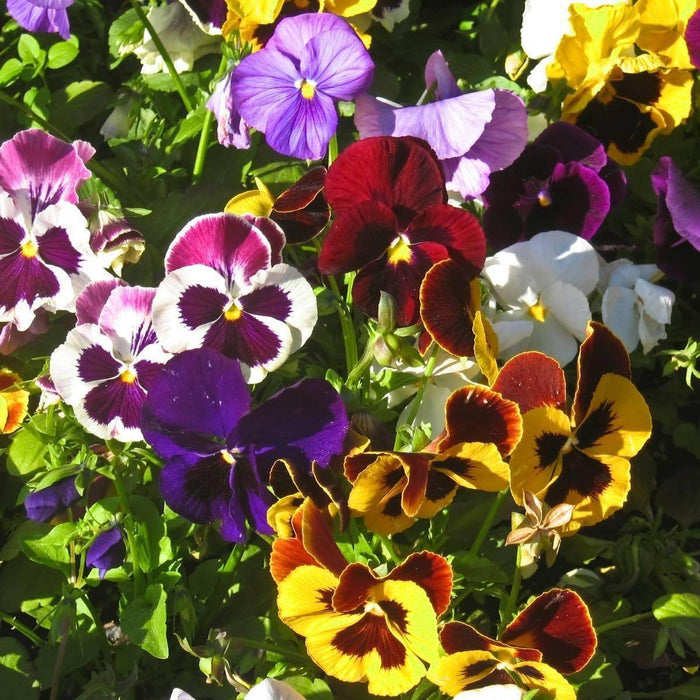
Pansies are a cool-season annual plant that grows best during the fall, winter, and early spring months. They are typically planted in the late summer or early fall, and can continue to bloom until the weather warms up in the spring. Pansies prefer cool temperatures ranging from 45°F to 65°F (7°C to 18°C) and will start to decline when temperatures rise above 70°F (21°C). In areas with mild winters, pansies can also be planted in the late winter or early spring for a second blooming period. Overall, pansies are a great plant for adding color to your garden during the cooler months of the year.
Here are some tips for growing pansies:
- Soil: Pansies prefer well-draining soil that is rich in organic matter. Before planting, amend the soil with compost or aged manure to provide the plants with the nutrients they need to thrive.
- Sunlight: Pansies can grow in full sun to partial shade, but they prefer cooler temperatures and partial shade during the warmer months. In hot climates, they may benefit from some afternoon shade.
- Watering: Pansies prefer consistently moist soil. Water them deeply once or twice a week during dry spells, making sure not to overwater them. Pansies are susceptible to root rot, so it's important not to let them sit in waterlogged soil.
- Fertilization: Pansies benefit from regular fertilization with a balanced, water-soluble fertilizer. Apply the fertilizer every four to six weeks during the growing season.
- Deadheading: Deadheading, or removing spent blooms, can help prolong the blooming period of your pansies. Pinch off the faded flowers at the base of the stem as soon as they begin to wilt.
- Mulching: Applying a layer of organic mulch around the base of your pansies can help retain moisture, suppress weed growth, and regulate soil temperature.
- Pest and disease control: Pansies are relatively resistant to pests and diseases, but they can occasionally be affected by aphids, slugs, or powdery mildew. Keep an eye out for any signs of damage and treat any problems promptly to prevent them from spreading.
By following these tips, you can help ensure that your pansies grow healthy and produce plenty of colorful blooms.
